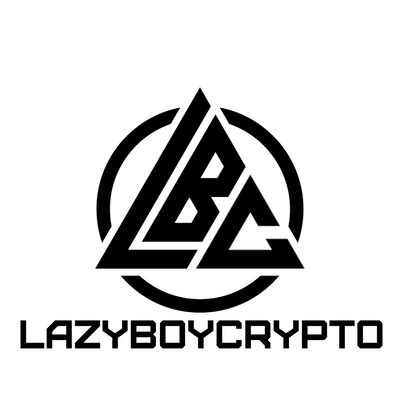What is DeFi?
You might have heard the term “DeFi” thrown around in the crypto space. What is DeFi and what does it mean for you? DeFi is short for decentralized finance.
A bank is a centralized institution. Your money is in the bank and therefore it is controlled by the bank and only the bank. You might think you have control of your own money, but really you are limited to the bank’s rules and policies e.g. you have a certain number of transactions allowed per month, you must pay a monthly fee etc.
You are also putting your good faith in the bank that it won’t shut you out of your account, cancel your cards, or prevent you from accessing your own money. Banks actually have a lot of control over your money.
Decentralized finance is the opposite of a bank. There is no institution that controls your money. It gives you the power and control over your own money.
Cryptocurrencies are decentralized. If you have a private crypto wallet, then only you control your crypto. Nobody can take it from you, nobody can prevent you from accessing it, and you’re allowed to spend as much of it as you want, where you want, without restrictions.
The best thing about cryptocurrency is that for a tiny fee, you can send any amount to a person on the other side of the world within minutes, even seconds. A bank would charge you a considerable fee and take a week to do the same thing. That’s the power of decentralized finance.
DeFi doesn’t stop there, however. There are actually many great DeFi products that exist that you can use right now.
Crypto Lending and Borrowing

There are a number of DeFi platforms where you can lend your Bitcoin and other crypto assets in exchange for interest. The two biggest lenders are Maker and Aave. Banks work by lending out people’s money and earning interest in return. Now, anyone can take advantage of this lucrative industry and become a lender. The difference is, these loans are executed via smart contracts on the blockchain. There is no paperwork to fill out, and anyone can access them.
Decentralized lending and borrowing is growing in popularity and it’s a great way for those who have a large amount of crypto to earn interest on it. For borrowers, it offers an opportunity to secure a loan without having to disclose your identity and deal with a bank that may reject you. Borrowers must put up crypto worth more than the loan as collateral, in case the value of the crypto drops.
Say you own one Bitcoin but you also need a lump sum of cash, which you don’t have and you don’t want to sell your Bitcoin to get it. You can put your Bitcoin up as collateral in exchange for another cryptocurrency that you can use. As long as you pay back the loan plus interest, you’ll receive your Bitcoin back in the end.
Another reason people borrow using DeFi loans is speculation. If you think the price of Bitcoin will go up soon, you can take out a loan, buy Bitcoin with it, and when the price shoots up, you pay back the loan and keep the profit.
Yield Farming

Perhaps you’ve heard of Uniswap or PancakeSwap. These DeFi platforms allow users to stake their assets and “farm” crypto. Yield farming can be lucrative and it’s popular because of the insanely high returns. Most farms will offer returns anywhere from 30% to 200+% APR. Compare that to a traditional savings account which will usually pay somewhere between 0.1% to 2%, you can see why they are popular.
Of course, high returns include high risks such as:
- The value of the assets staked going down
- Smart contract bugs
- Rug pulls (When the platform suddenly disappears along with your crypto)
Uniswap, which uses the Ethereum blockchain, popularized yield farming.
How does yield farming work?
People, called liquidity providers, provide liquidity to liquidity pools in exchange for tokens in return.
What is liquidity? It’s basically the availability of cash or in this case, crypto, to meet operational needs. When you trade one crypto for another on a DeFi platform such as PancakeSwap, those coins come from liquidity pools.
Say you want to swap BNB for CAKE – there has to be enough of BNB and CAKE in the BNB/CAKE pool for that swap to happen. If there’s no liquidity, the trade can’t happen. That means PancakeSwap has to keep those liquidity pools full. To incentivize people to deposit coins into these pools, PancakeSwap rewards people who do.
When you go to PancakeSwap, which is a decentralized exchange, you can see a number of farms and pools available.

One farm is CAKE – BNB. This means the farm is made up of equal amounts PancakeSwap (CAKE) and equal amounts Binance Coin (BNB). The people who provide this pool with CAKE and BNB tokens are called liquidity providers. They are incentivized to provide tokens to this pool because of the high APR they receive in return. Interest is paid to them in CAKE and BNB tokens, which they can sell if they wish.
These farms are risky and we recommend reading about impermanent loss before you invest in any farm.
Decentralized Exchanges

PancakeSwap is a type of decentralized exchange. If you take Binance for example, that is a centralized exchange. They have a CEO and they are obligated by law to comply with regulations in every jurisdiction they operate. That’s why they ask you to provide identity documents when you sign up.
A decentralized exchange (DEX) is not a company. They are peer-to-peer exchanges that rely on smart contracts to operate. When you use a typical centralized exchange like Binance, you are required to transfer funds to your Binance account in order to purchase crypto.
With a DEX, you do not need to do this. Instead, you connect your external private wallet (e.g. Metamask), including hardware wallets, and the funds are taken from your wallet when you make an exchange. Keep in mind, you can only use a DEX to exchange one crypto for another. Popular DEXs include PancakeSwap, Uniswap, and SushiSwap.
Anybody can use a decentralized exchange and that’s why they are so powerful and useful.
Next, find out how you can easily complete your taxes with the use of a crypto tax calculator. Read our crypto tax guide.


 Bitcoin
Bitcoin  Ethereum
Ethereum  Tether
Tether  Solana
Solana  USDC
USDC  XRP
XRP  Lido Staked Ether
Lido Staked Ether  Dogecoin
Dogecoin  Toncoin
Toncoin  Cardano
Cardano  Shiba Inu
Shiba Inu  Avalanche
Avalanche  TRON
TRON  Polkadot
Polkadot  Wrapped Bitcoin
Wrapped Bitcoin  Bitcoin Cash
Bitcoin Cash  Chainlink
Chainlink  Polygon
Polygon  NEAR Protocol
NEAR Protocol  Internet Computer
Internet Computer  Litecoin
Litecoin  LEO Token
LEO Token  Uniswap
Uniswap  Dai
Dai  First Digital USD
First Digital USD  Aptos
Aptos  Ethereum Classic
Ethereum Classic  Hedera
Hedera  Cosmos Hub
Cosmos Hub  Cronos
Cronos  Mantle
Mantle  Pepe
Pepe  Stellar
Stellar  Filecoin
Filecoin  Immutable
Immutable  Render
Render  Stacks
Stacks  XT.com
XT.com  OKB
OKB  Renzo Restaked ETH
Renzo Restaked ETH  Optimism
Optimism  Arbitrum
Arbitrum  dogwifhat
dogwifhat  Sui
Sui  Bittensor
Bittensor  Wrapped eETH
Wrapped eETH  Maker
Maker